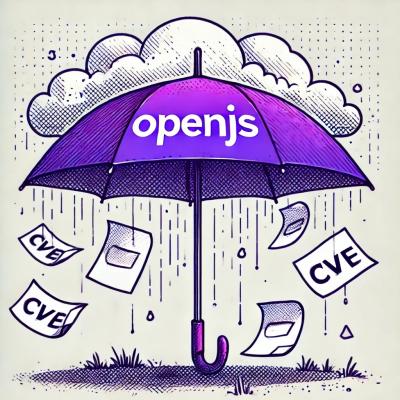
Research
Security News
Malicious npm Package Wipes Codebases with Remote Trigger
A malicious npm typosquat uses remote commands to silently delete entire project directories after a single mistyped install.
@dword-design/babel-plugin-wildcard
Advanced tools
Allows you to import all files from a directory at compile-time.
$ npm install babel-plugin-wildcard
.babelrc (Recommended).babelrc
{
"plugins": ["wildcard"]
}
$ babel --plugins include script.js
require('babel').transform('code', {
plugins: ['wildcard']
});
With the following folder structure:
|- index.js
|- dir
|- a.js
|- b.js
|- c.js
the following JS:
import * as Items from './dir';
will be compiled to:
const Items = {};
import _wcImport from "./dir/a";
Items.A = _wcImport;
import _wcImport1 from "./dir/b";
Items.B = _wcImport1;
import _wcImport2 from "./dir/c";
Items.C = _wcImport2;
meaning you will be able to access the items using Items.A and Items.B.
You can also selectively choose files using:
import { A, C } from "dir/*";
which in the above example would convert to:
import A from "./dir/a";
import C from "./dir/c";
The above is like doing:
import * as temp from "dir";
const { A, C } = temp;
There is also simple Glob support so given the directory structure:
|- index.js
|- dir
|- a.js
|- a.spec.js
|- b.js
|- b.spec.js
this import:
import * as tests from './dir/*.spec';
will compile to:
import aSpec from './dir/a.spec';
import bSpec from './dir/b.spec';
Files are automatically camel-cased and in the import statements the extensions are clipped unless specified otherwise (see below)
. (e.g. .foo -> Foo or foo depending on settings)import { ... } from 'foo/*', the identifiers inside { ... } are the same as what their name
would be if you were to import the whole directory. This means it is the files' names' pascal/camel-cased and extensions removed etc. by default (depending on settings of course).babel-plugin-wildcard allows you to change various settings by providing an options object by using the following instead:
{
plugins: [
['wildcard', { options }]
]
}
where { options } is the options object. The following options are available:
extsBy default, the files with the following extensions: ["js", "es6", "es", "jsx"], will be imported. You can change this using:
{
plugins: [
['wildcard', {
'exts': ["js", "es6", "es", "jsx", "javascript"]
}]
]
}
If you add the extension "", it will also import subdirectories.
nostripBy default, the file extension will be removed in the generated import statements, you can change this using:
{
plugins: [
['wildcard', {
'nostrip': true
}]
]
}
This is useful when the extension of your source files is different from the outputted ones. (e.g. .jsx to .js).
useCamelCaseBy default the name is converted to PascalCase, if you prefer camelCase, you may set this option to true:
{
plugins: [
['wildcard', {
'useCamelCase': true
}]
]
}
noModifyCaseBy default, the name will be automatically pascal cased, the following regex is used to extract the words, those words then have their first letter capitalized and are joined together:
[A-Z][a-z]+(?![a-z])|[A-Z]+(?![a-z])|([a-zA-Z\d]+(?=-))|[a-zA-Z\d]+(?=_)|[a-z]+(?=[A-Z])|[A-Za-z0-9]+
you can disable this behavior using:
{
plugins: [
['wildcard', {
'noModifyCase': true
}]
]
}
Extensions are still removed (except dotfiles, see "Information").
FAQs
`import` now works with directories
The npm package @dword-design/babel-plugin-wildcard receives a total of 209 weekly downloads. As such, @dword-design/babel-plugin-wildcard popularity was classified as not popular.
We found that @dword-design/babel-plugin-wildcard demonstrated a not healthy version release cadence and project activity because the last version was released a year ago. It has 1 open source maintainer collaborating on the project.
Did you know?

Socket for GitHub automatically highlights issues in each pull request and monitors the health of all your open source dependencies. Discover the contents of your packages and block harmful activity before you install or update your dependencies.

Research
Security News
A malicious npm typosquat uses remote commands to silently delete entire project directories after a single mistyped install.

Research
Security News
Malicious PyPI package semantic-types steals Solana private keys via transitive dependency installs using monkey patching and blockchain exfiltration.

Security News
New CNA status enables OpenJS Foundation to assign CVEs for security vulnerabilities in projects like ESLint, Fastify, Electron, and others, while leaving disclosure responsibility with individual maintainers.